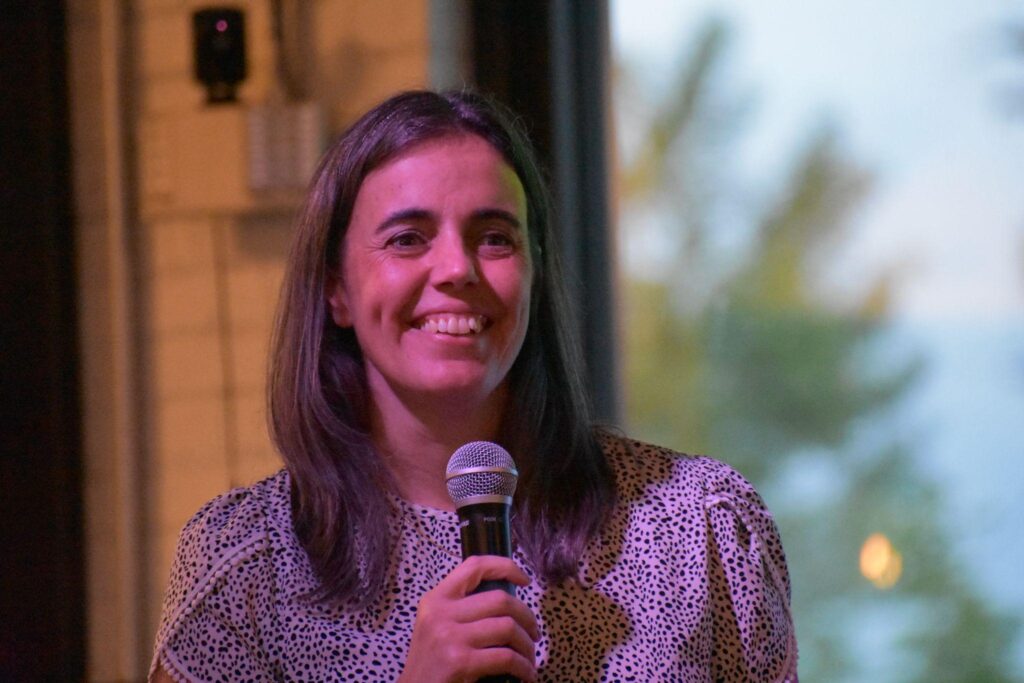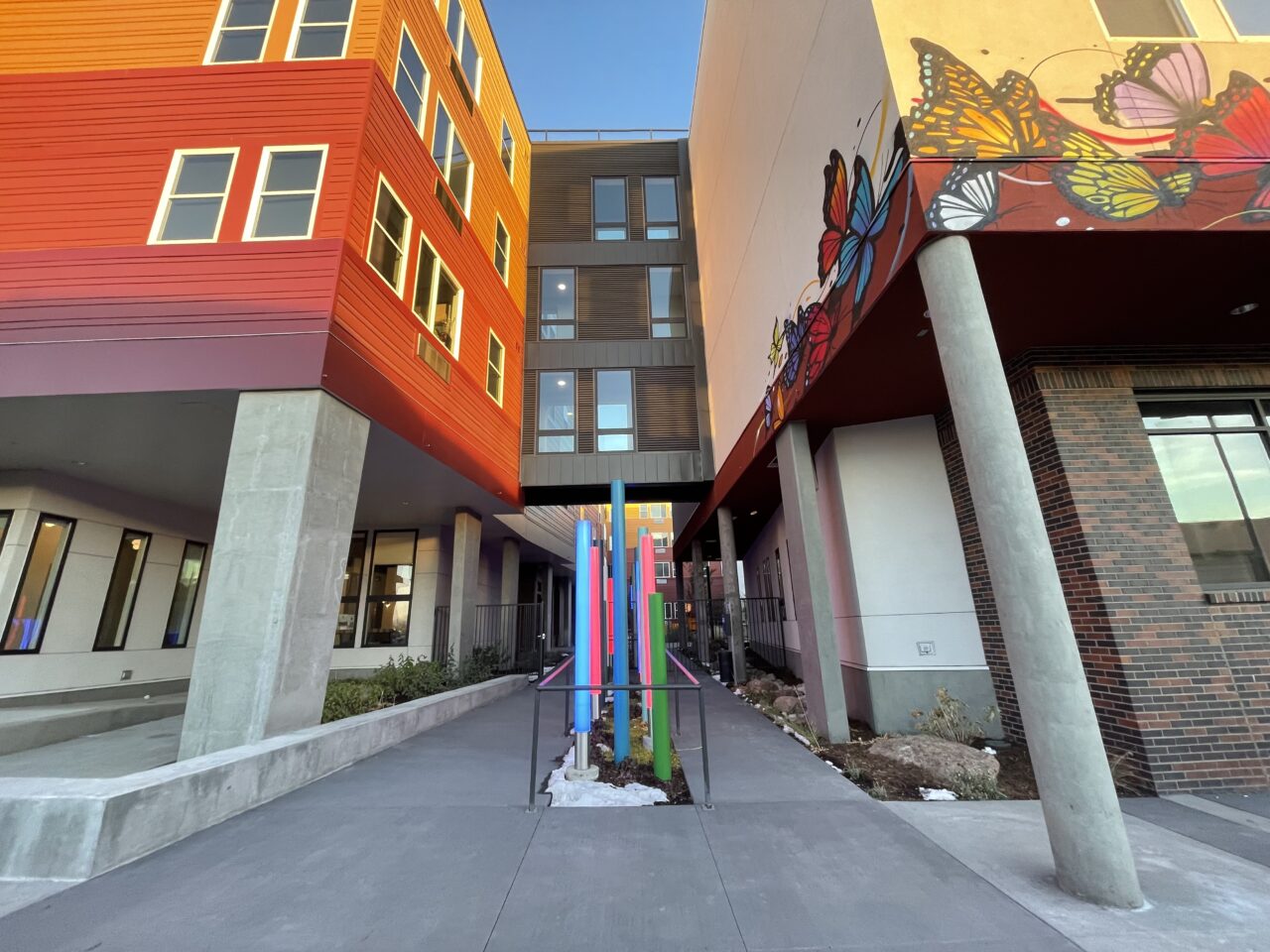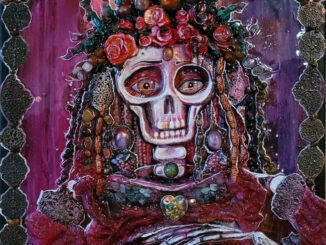
By Rossana Longo Better
In a nation shaped by the resilience, creativity and dedication of immigrant communities, the “Cocina Libre” project stands as a testament to their profound contributions. Co-author Julia Roncoroni blends traditional recipes with powerful personal narratives, amplifying immigrant voices, challenging stereotypes and breaking down barriers.

As we approach the holidays, when families and friends nationwide gather to celebrate, “Cocina Libre” arrives at the perfect time, offering recipes that can bring a unique, flavorful touch to the holidays with some spice, flavor and color.
In May 2024, “Cocina Libre” launched two significant projects: a book and a documentary. Since then, the initiative has sold 525 copies of the book and reached the No. 1 spot on Amazon’s New Releases category.
Today, “Cocina Libre” operates as a social enterprise offering dinners, cooking classes and diversity workshops, all led by immigrant chefs. Each event begins with preparing cultural dishes, followed by storytelling and meaningful connections. All profits after expenses are used to provide immigrant chefs with professional culinary training and support to obtain the licenses needed to start their own food businesses.
Julia Roncoroni joined La Ciudad to discuss “Cocina Libre,” its impact, and how cooking breaks barriers and builds opportunities.
This interview has been edited for length and clarity.
🎙️La Ciudad: Julia, before we dive into “Cocina Libre,” I would love to hear about your background. What inspired you to co-author this project? How did your experiences shape your approach to creating a book that blends food, storytelling and social justice?
Julia Roncoroni: That’s a good question. I’m an immigrant from Argentina. I’m a licensed psychologist. I’ve worked with immigrants for 15 years at this point. I am also a tenured associate professor at the University of Denver. My co-author, Dr. Delio Figueroa, is a music educator from Puerto Rico who studies identity development in the diaspora and has also worked with immigrants at this point maybe the same amount of time. Of course, we have personal experience with immigration, but also in sitting with the community.
And sitting with our clients or students we started to notice that many of the stories of resilience in our communities needed to be better known. So often, immigrants are depicted as either criminals or victims needing rescue, but there’s no good sense of the complexity of the immigrant experience. We also realized that we often share food with our communities because our communities depend on food financially.
When we love each other and connect, we eat, cook, and eat. So we figured that combining food and storytelling would be a good vehicle for communicating some of these stories and generating empathy. That’s how we started.
🎙️La Ciudad: Could you share some of the stories or recipes that resonate with you? And how do these personal accounts help to counter the negative stereotypes often associated with immigration? How do these personal accounts help counter the negative stereotypes often associated with immigration?
Roncoroni: One that comes to mind in the context that we’re living in these weeks is the story of Lila. Lila came from Venezuela, and there’s a lot of rhetoric about why Venezuelans have come to the U. S. most recently, right? In meeting Lila, I was struck by the number of barriers that she faced leaving Venezuela, going first to Colombia, and then crossing the Darien jungle with her two adolescent daughters, not knowing if she would survive, not knowing if she would be able to be with her children, because they were doing mostly OK. But she hurt her foot and didn’t know if she could escape the jungle.
She only intended to get an education for her children, knowing that currently, there are very few high school teachers in Venezuela, and her daughters were high school students. That story is an excellent example of the struggles that many of our immigrants will go through just to be here to work, just to be here to give their families — their children — a better life.
🎙️La Ciudad: This book also sheds light on the human toll of U.S. immigration policies. Each recipe is paired with deeply personal narratives that reveal the struggles and triumphs of immigrant life. In what ways do you hope that “Cocina Libre” will impact readers’ understanding of that immigrant experience, particularly when it comes to dispelling fear-based narratives surrounding immigration?
Roncoroni: Our programs do more than just tell stories. They transform lives by combining food, storytelling and community. We create empathy and offer real opportunities for immigrants to gain visibility and employment and support the proceeds beyond the expenses of what we do. So we are launching a podcast in 2025. We have a cookbook. We are doing community dinners, private dinners, cooking classes and diversity workshops, and all the proceeds from that go to supporting immigrant chefs in obtaining the necessary licenses to operate their food businesses. This is done to help them gain independence and build sustainable careers so that they can continue to impact the community.
🎙️La Ciudad: Each recipe and story of “Cocina Libre” provides an intimate perspective on immigrants’ lives, celebrating culture and resiliency while also exposing painful realities like detention and family separation. How do you think food and storytelling can serve as social justice tools?
Roncoroni: We all eat, and we all like food. We don’t necessarily like the same, but we all like food. So, we often start our workshops by asking people to think of food tied to an emotional memory.
We all can do that. It doesn’t matter if it is Abuelita (Grandmother) making bacalaitos or tamales (or) empanadas, or if it is a special dish from the country you come from, what culture or group you come from. We all can think of foods that have touched our hearts and foods that feel like home. So food is a phenomenal vehicle for saying, “This is who I am.”
This is what I’m here to give. So often we talk about immigrants as coming here with nothing, and that’s absolutely not true. Immigrants come here with cultural backgrounds, stories to tell and stories we can learn from. Both Delio and I think that food is a really good vehicle for building community and fostering empathy.
🎙️La Ciudad: Some say the country’s power is in uniting different ethnicities and that everybody coming here is to give the best of the best, and that’s a reason small businesses — especially those from small communities, from ethnic communities — really thrive. So, it is this beautiful thing we eat wonderful food because of that.
Roncoroni: One of the things we do when we start our workshops is ask people, were you born in Colorado? If you trace your family three, four, or five generations back, they were born in Colorado, right? Colorado is especially a state where we have so much immigration, not necessarily from Venezuela or Mexico, although we also have that, but we are a state that’s built by immigrants, right?
So, this is a project by immigrants and for immigrants, too.
There’s this misconception. I think I’m Latina, but when I think about Latinos, there’s this misconception that we’re all the same. One thing that comes up often is empanadas and tamales. That is tied to growing up in Argentina, and having empanadas is a big one. My empanadas are my Argentinian empanadas.
But I love empanadas from all over Latin America, and they don’t smell or taste like the empanadas made by my mom.
🎙️La Ciudad: You just reminded me of all the different kinds of empanadas from my country of origin, Ecuador. The ones that are made out of green plantains are the best. I’m getting out of the script, but have you heard from the immigrants you interviewed and featured in this beautiful book with their recipes how they managed to create recipes without the ingredients they were used to having in their countries?
Roncoroni: That’s an interesting question because it again shows the power of food, right? Food is identity and is also history. For many of our immigrants, they adapt, food is resilience and adaptability because they sometimes have to use ingredients that they successfully find in Colorado, in this case, and sometimes they don’t. For a long time, we had a scarcity of “harina pan” a special flour to make arepas, and so it was a struggle for some of our South Americans. Some people ask if they could eat something else. Of course, they could. But again, this ingredient is who I am, and this is what we do as a family.
There’s a relational element to food that sometimes gets lost when we trade who we are. And there’s acculturation that happens in food also, right? People will say, “I work with a student at the University of Denver who’s in the master’s program in counseling psychology, and she says that her family is Italian, but they live in Southern California.”
And so they make spaghetti tacos and figure it out. But it’s the power of food. It’s that adaptability: They didn’t like spicy food, but liked tacos. And how do we blend with what’s around us, too?
🎙️La Ciudad: “Cocina Libre”’s work provides an intimate perspective on immigrant life, celebrating culture and resiliency while exposing painful realities. What responses have you received from readers or participants suggesting this approach changes hearts and minds?
Roncoroni: Interestingly, we conducted a survey not long ago. It’s not something that we thought about when we started, but we started thinking about it as we were developing programming recently.
When we started using food as a platform, it was more of an act of intuition because we eat and love their food. But that’s one thing that people have highlighted, right? The power of food to center the humanity of our immigrants. It doesn’t matter where you fall on the political spectrum or how you believe we should improve the immigration system.
There is something about food that helps us connect and set all of that aside, even if it’s for just this dinner, right? We connect with the humanity of Lila being a mom and crossing the Darien jungle with her two teenage daughters, (with) Jasper wanting to be a baker and not being able to pursue that dream in his country so coming here. Tatiana leaving Ukraine and waiting six hours at the border so that she can continue her career as a chef here in the United States.
🎙️La Ciudad: The book of “Cocina Libre” goes beyond the book itself. You have developed a social enterprise that offers immigrant-led dinners and cooking classes: diversity, equity, inclusion and justice workshops. Could you tell us about this expansion and how these experiences create a more profound impact on the chefs and the people who attended?
Roncorino: We’re very fortunate in that we were selected to participate in a business accelerator.
Neither Delio nor I have any business training, so we needed some help supporting our chefs. We want to launch our next book in 2026 and continue supporting our chefs in the period between now and that next book. So, we received a lot of support from this free business accelerator. We’ve now developed a social enterprise offering everything you named: cooking classes, dinners including diversity, equity and inclusion workshops.
All the proceeds from those events, beyond expenses, go to support chefs in developing their food businesses, right? So they can get established and continue to contribute to the community.
🎙️La Ciudad: I checked it out yesterday, and I was looking at all those videos put up by, I think, 14, 15 different offers for new businesses or businesses that want support and guidance, and I was like, oh my gosh, this is the fabric of this country, really. It’s the fabric of entrepreneurship and the desire of the people to give from themselves a little bit, un pedacito de mi, a little piece of me, of my heart. How can people find out more about this accelerator program so that if they have an idea in mind, they can apply and maybe be as lucky as you to win this support?
Roncoroni: The accelerator is called Seachange. You can just Google Seachange, Colorado, and the first thing that comes up is the accelerator. They open a cohort every year and the next cohort will be in the fall of 2025.
🎙️La Ciudad: Julia, “Cocina Libre” is pretty much a labor of love and heart. It supports the Colorado Immigrant Rights Coalition while opening doors for many immigrant chefs. As you look to the future, what is your vision for “Cocina Libre” and what impact can it continue to have?
Roncoroni: We have donated all the proceeds from our first book to the Colorado Immigrant Rights Coalition. As we’re building this social enterprise, we intend to continue supporting immigrants. We’re launching our podcast in January 2025, which will be under the undergraduate and graduate students at the University of Denver.
We’re launching our next documentary in the fall of 2025, so stay tuned. We have a website where we post all of our events and community activities. The website is Cocina Libre and we also have an Instagram page called (@CocinaLibre_Collective). We post everything we do on those two sources.
Let’s honor immigrant stories, build bridges together, and join us for a meal.




Be the first to comment